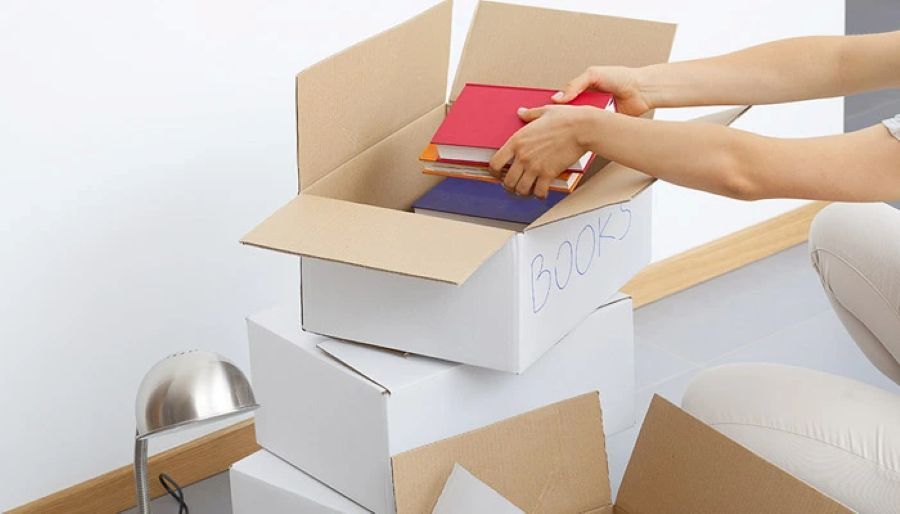How to Help Your Movers During a Heatwave?
To help your movers during a heatwave! Moving in hot weather puts extra stress on everyone involved. Simple acts like providing cold water, creating shade, and allowing more breaks can make a huge difference. Your movers will work better and safer when they feel supported.
Why Heat Makes Moving So Much Harder
Moving is tough work on any day. But when temperatures climb above 80°F, the job becomes much more challenging. According to theOccupational Safety and Health Administration, thousands of workers become sick from heat exposure each year, with construction and outdoor workers at highest risk. Your movers face the same dangers.
Hot weather creates several problems during a move:
- Dehydration happens fast - Workers lose water through sweat much quicker than normal
- Energy drops quickly - High heat makes people tired faster
- Thinking gets fuzzy - Heat affects concentration and decision-making
- Accidents increase - Research shows workplace injuries increase by 6-9% on days with highs of 90°F
The Hidden Dangers of Heat
Most people don't realize how dangerous heat can be. TheAmerican Red Cross reports that extreme heat kills more people than any other weather event. For movers carrying heavy boxes and furniture, the risks are even higher.
New workers and those returning from time off are most at risk. This includes seasonal movers who might not be used to working in summer heat yet.
Essential Ways to Help Your Movers Stay Cool
Provide Plenty of Cold Water
Water is the most important thing you can offer. TheCenters for Disease Control and Prevention recommends that workers drink 1 cup of water every 15-20 minutes during moderate activity. Don't wait for movers to ask - have cold water ready from the start.
Best water options:
- Ice-cold bottled water
- Sports drinks for longer moves (over 4 hours)
- Electrolyte drinks like Gatorade or Pedialyte
- Fresh water from your tap if utilities are still on
Keep water in multiple spots around your home. Place bottles near the truck, by the front door, and in the rooms where movers are working. Water should be placed as close as possible to where workers are working.
Create Cool Rest Areas
Workers need cool places to take breaks and recover from heat. Set up a dedicated cooling area where movers can escape the heat.
Good cooling spots:
- Air-conditioned rooms with doors that stay closed
- Shaded areas outside with fans
- Garage with fans running
- Covered porch or patio
Stock your rest area with:
- Extra water bottles
- Healthy snacks
- Towels for wiping sweat
- First aid supplies
Offer the Right Refreshments
While movers bring their own food and drinks, providing refreshments is appreciated, especially on hot days. Focus on items that help fight the heat.
Great heat-fighting snacks:
- Fresh fruit (watermelon, oranges, grapes)
- Frozen treats (popsicles, ice cream)
- Light sandwiches
- Granola bars
- Crackers with electrolytes
What to avoid:
- Heavy, greasy foods
- Alcohol (never offer this to working movers)
- Too much caffeine
- Spicy foods
Use Fans and Cooling Tools
Portable fans can make a huge difference. Fans help circulate air and keep temperatures down where you're loading boxes. Place fans in high-traffic areas like doorways and loading zones.
Cooling tools that help:
- Portable fans in work areas
- Misting fans for outdoor areas
- Cold, wet towels for neck cooling
- Ice packs for severe heat
Warning Signs of Heat-Related Illness
Every customer should know the signs of heat problems. Heat exhaustion can quickly turn into heat stroke, which can be deadly. TheMayo Clinic emphasizes that heat stroke causes body temperature to soar above 104°F and requires immediate medical attention. Watch your movers for these warning signs:
Heat Exhaustion Symptoms
- Heavy sweating
- Weakness or tiredness
- Dizziness
- Nausea
- Headache
- Muscle cramps
Heat Stroke Symptoms (Medical Emergency)
- Body temperature above 104°F
- Hot, red, dry skin
- Fast, strong pulse
- Confusion
- Passing out
What to do if you spot these signs:
- Move the person to a cool area immediately
- Apply cold water to skin
- Call 911 for heat stroke
- Give small sips of water if they're conscious
Smart Scheduling Tips for Hot Weather Moves
Start Early in the Day
The sun's UV rays are strongest between 11 AM and 3 PM. Schedule your move to start as early as possible. Mostlocal movers prefer early starts anyway.
Best moving times:
- Start at 7 AM or 8 AM
- Take longer breaks during peak heat hours
- Finish loading before afternoon heat peaks
Plan for Weather Changes
Summer thunderstorms are common in the afternoon. Check the weather forecast and have backup plans ready.
Weather planning tips:
- Have tarps ready for sudden rain
- Set up staging areas under cover
- Monitor heat index throughout the day
- Be ready to take longer breaks if needed
Consider Professional Help
If you're worried about the heat, consider hiringprofessional movers who have experience with hot weather moves. Professional crews know how to work safely in extreme heat.
Protecting Your Belongings from Heat Damage
Items That Can't Handle Heat
Some of your things can be damaged by extreme heat. Electronics, photos, and certain foods can be ruined if left in hot trucks.
Heat-sensitive items to move in your car:
- Computers and tablets
- TV screens
- Photo albums
- Chocolate and candy
- Wine and alcohol
- Candles and wax items
- Vinyl records
Temperature-Controlled Storage
For long-distance moves, considerstorage solutions with climate control for valuable items.
Creating a Heat Safety Plan
Before Moving Day
Prepare your home:
- Turn on air conditioning early
- Set up fans in key areas
- Stock up on cold drinks and snacks
- Clear pathways to reduce work time
Communicate with your movers:
- Ask about their heat safety policies
- Discuss break schedules
- Share your cooling areas
- Confirm start times
During the Move
Stay alert for:
- Movers taking longer breaks
- Signs of fatigue or confusion
- Requests for more water
- Changes in work pace
Be flexible with:
- Timeline adjustments
- Extra break time
- Modified lifting schedules
- Weather-related delays
Special Considerations for Different Types of Moves
Apartment Moves
Apartment movers face extra challenges with stairs and tight spaces. Provide water stations on each floor and consider elevator cooling if possible.
Senior Moving
Senior moving requires extra care. Older adults are more sensitive to heat, so ensure senior clients have cool spaces to rest.
Emergency Moves
Emergency moving during heat waves needs special attention. Safety comes first, even if it means delaying the move.
What Professional Moving Companies Do
Reputable moving companies have heat safety plans. Professional movers upgrade truck air conditioning, provide coolers with ice, and monitor weather forecasts before hot weather moves.
Professional heat safety measures:
- Pre-move weather monitoring
- Upgraded truck air conditioning
- Mandatory water and electrolyte supplies
- Trained crews who recognize heat illness
- Modified work schedules for extreme heat
Legal and Safety Standards
OSHA requires employers to provide water, rest, and shade for workers in hot conditions. While you're not the employer, helping meet these needs shows care for your moving team.
According to theCenter for American Progress, construction workers account for 36% of heat-related deaths from 1992 to 2016. Your support can help prevent these tragedies.
Final Thoughts
Helping your movers during a heatwave isn't just good manners - it's about safety. Simple actions like providing cold water, creating shade, and watching for heat illness signs can prevent serious problems.
Remember, heat-related illness is preventable with proper preparation. Your movers will appreciate your thoughtfulness, and you'll get better service when your team feels supported.
Planning a summer move? ContactLast Stop Moving for professional Edmonton movers who know how to handle hot weather safely. We bring the experience and equipment needed for successful summer moves.
Stay cool, stay safe, and make your moving day a success - even when the temperature soars!



